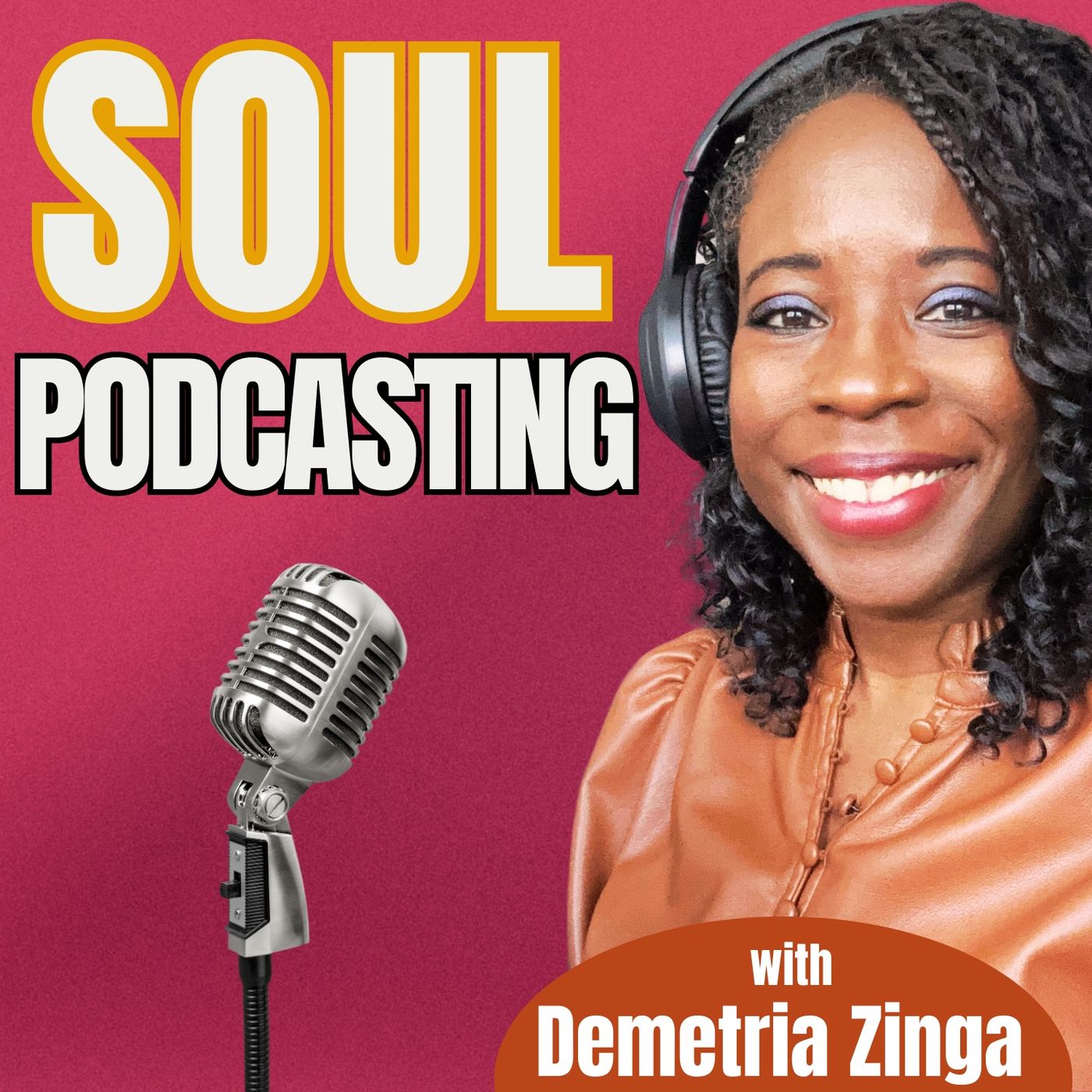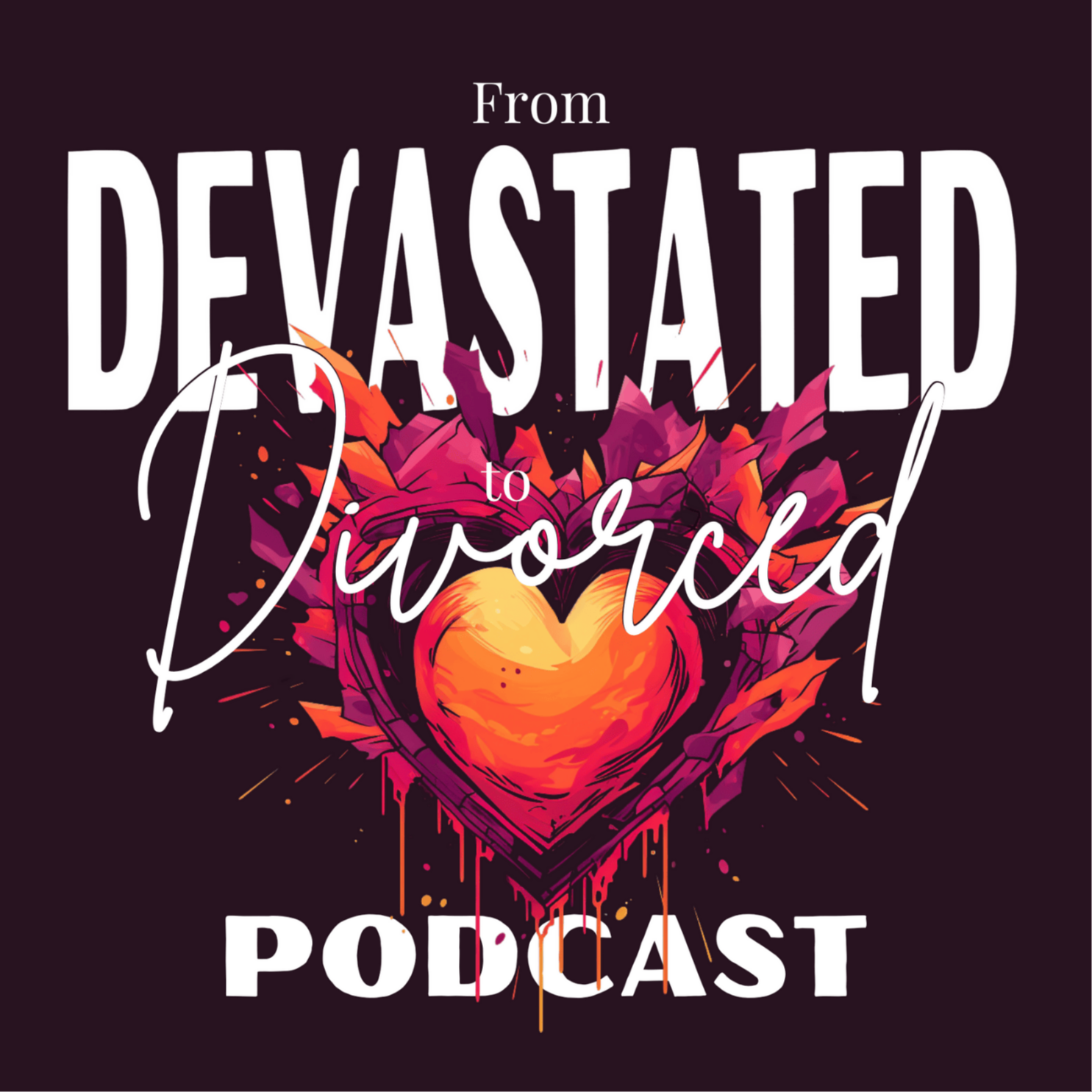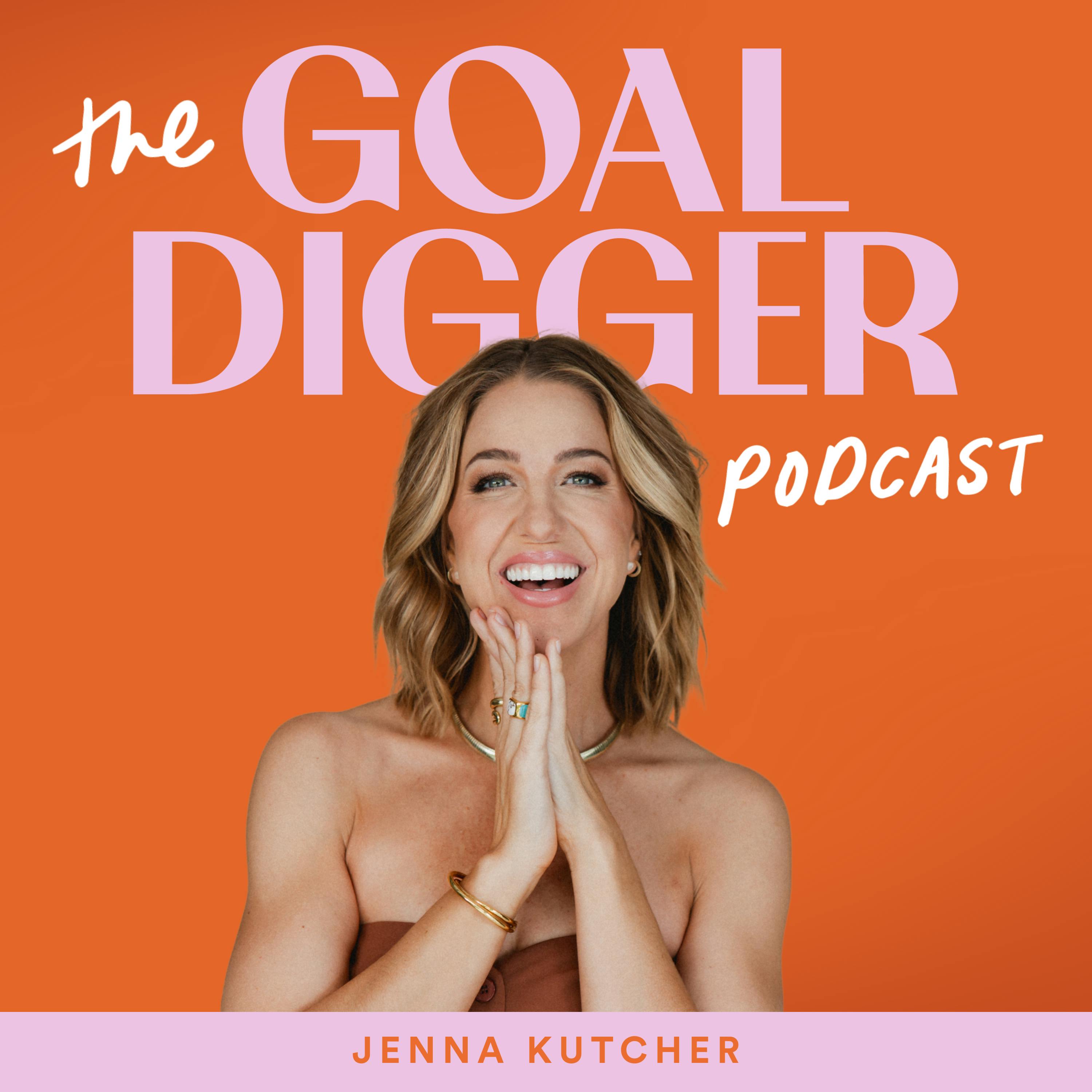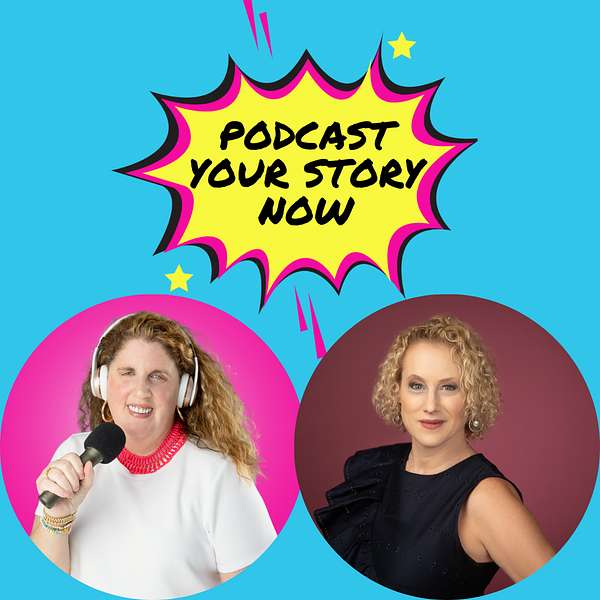
Podcast Your Story: Amplifying Women's Voices in Podcasting
Podcast Your Story is all about helping purpose-driven women own their voice and share their stories as powerful podcast guests and hosts. Whether you’re dreaming of becoming a sought-after podcast guest, ready to launch your own show, or grow an existing podcast, Podcast Your Story is here to guide and support you every step of the way. Listen to inspiring stories from women who are using podcasting to amplify their voices, share their stories, and grow their visibility.
Host Dr. Julie Marty-Pearson, Podcaster, Speaker, Visibility Coach & Podcasting Mentor, brings you practical strategies, honest conversations, and inspiring stories from women who are using podcasting to share their stories and grow their businesses.
Each episode focuses on a powerful theme— from how to become a confident and memorable podcast guest, to how to launch your show without the overwhelm, or how to craft your message for maximum impact. You'll hear a mix of solo episodes, expert interviews, and behind-the-scenes insights designed to help you show up, speak up, and shine.
Because YOUR STORY MATTERS. And your voice is meant to be heard.
Thank you for listening to Podcast Your Story. If you enjoy the show, I’d be so grateful if you’d subscribe, leave a rating or review, and share it with another woman who’s ready to use her voice to transform her life and inspire the world.
About Your Host:
Dr. Julie Marty-Pearson is a Visibility Coach, Podcasting Mentor, and Community Builder for purpose-driven women who are ready to own their voice and share their story. She coaches people to grow their visibility and confidence through podcast hosting, guesting, and speaking.
Julie hosts two podcasts:
🩷 Podcast Your Story, which focuses on amplifying women's voices and practical tips to grow their business through podcasting.
🩷 The Story of My Pet, a Top 5% podcast, sharing inspiring tales of pets focused on advocating and educating for animals rescue, fostering, and adoption.
Julie also created and hosts two communities:
🩷 Women's Podcaster Party Networking Community, for podcasters, guests, and speakers to connect and collaborate. Come check out our Monthly Networking Events.
🩷 Podcast Your Story Community which supports women and non-binary people to become and grow as Podcasters, Guests, Speakers, and Storytellers. To learn more and join, visit Podcast Your Story Community Membership.
Connect with your host–
Website - YouTube - Instagram - Facebook - LinkedIn - Pinterest
Contact your host: julie@podcastyourstorynow.com
Podcast Your Story: Amplifying Women's Voices in Podcasting
Embracing Your Voice: Podcasting as a Path to Empowerment and Connection
Have you ever felt like your voice was just one in a crowd, struggling to be heard? Elaine Williams, a gifted coach and storyteller, joins me, Julie Marty Pearson, to unravel the magic of podcasting as a beacon of hope for those yearning to be listened to. Our heartfelt exchange peels back the layers of narrative power, drawing on the warmth and camaraderie we shared at PodFest. r4UZgGWqOyBwGzlNyMvW
Episode highlights include:
-Why Telling Your Story is Important
-Why You Should Start Podcasting
-Why You Should Celebrate Yourself
-Why Finding Community is Important
Elaine's dedication to helping women command the spotlight shines as we dissect the transformative impact of confidence, whether you're facing a camera, a crowd, or just life itself. We venture through the peaks and valleys of podcast creation, detailing how we grow from Consciously Incompetent to Unconsciously Competent in the process. As Elaine and I reflect on our podcasting journeys, share our battle scars from perfectionism and impostor syndrome. Community emerges as the hero of our tale, with stories from Elaine’s collaborative book project "The Power of Community" illustrating the fortitude that comes from women supporting women. Tune in and let us guide you to find the courage to share your story, embrace your uniqueness, and maybe, just maybe, change a life.
Elaine Williams is a video performance coach, keynote speaker, speaker coach, best-selling author and comedian who has over a decade of experience working with entrepreneurs to build confidence and a captivating presence on camera. Some of her credits include: Saturday Night Live, America’s Got Talent, HBO, ABC, NBC, FOX, The New York Times, Hay House Radio & the Huffington Post. To learn more about Elaine, visit her Website, connect and follow her on LinkedIn, Facebook, and Instagram.
Host, Julie Marty-Pearson, PsyD is a Podcaster and Coach for New & Aspiring Podcasters, who is passionate about helping women share their unique voices and stories through podcasting. She mentors women in starting podcasts they are passionate about, just like she did with The Story of My Pet Podcast in 2022. Julie has now started her second podcast, Podcast Your Story Now
Connect with your host, Dr. Julie Marty-Pearson –
Website - Instagram - Facebook - LinkedIn - Subscribe to my YouTube Channel
Contact your host via Email: julie@podcastyourstorynow.com
Are you a Podcast Host or Guest or want to become one? Join my new membership Podcast Your Story Community
Come network with other podcast hosts, guests, & speakers at the free monthly events in the Women's Podcaster Party Networking Community.
Shop our affiliate partner Nuvita CBD Use code Julie10 for 10% off!
Listen to The Story of My Pet Podcast- Website - Instagram - YouTube
Welcome to the Podcast your Story Now podcast. I am your host, julie Marty Pearson, podcaster and coach for new and aspiring podcasters. I am so excited to have you here to listen to this new episode. I hope this story inspires you and gets you motivated to podcast your story now. Hello and welcome to a new episode of Podcast your Story Now. I am your host, julie Marty Pearson, and I am so excited to welcome my next guest, my friend, colleague, fellow coach and just all around awesome person, elaine Williams. Thank you so much for being here.
Speaker 2:Oh, thanks, julie. I'm so excited to be with you. I love all the things that you're up to and it was so cool getting to hang out with you at PodFest. Yes.
Speaker 1:So a little backstory with me and Elaine. We actually met through other fellow entrepreneurs who, hopefully, they will be on this podcast soon as well. We were connected through others. That's the great thing about being an entrepreneur and a coach and a podcaster and all the things you get to meet amazing people. Networking is huge, but even better. Elaine and I got to meet amazing people. Networking is huge, but even better. Alayna and I got to meet in person at PodFest and then we got the joy of getting to go to Disney World together, which was amazing. Yes, shout out to Brian D'Eria. We love you, brian, and we're going to get him to start a podcast too.
Speaker 1:Yeah, baby so that's a little bit about us. So we're going to have some fun with this episode, obviously, but we're going to start off with. I want Elaine to tell us a little bit about her world, where she is now, and then we'll get into where podcasting has been a part of her journey. So tell us a little bit about yourself.
Speaker 2:Okay, thank you, julie, I was just noodling. We were talking about podcasting and how it's just become this huge thing, and one of the things I loved about PodFest and I've been to a gazillion conferences was I really felt like people were there totally in a generous place, wanting to help other people, wanting to help the newbies, or wanting to help the people who are in help the newbies or wanting to help the people who are like in the middle and they hit a wall, and there was just such a sense of generosity and joy and spirit and the gift of humans. Telling stories. I get goosebumps.
Speaker 1:Yes, I did just now too. You know I've tried it. I like the way you explained it, because I've tried to explain it to people. I've been to a lot of conferences. My old world of higher education that you like had to go to conferences every year and present and network. But it was just this feeling of community that PodFest had that I'd never felt at any type of conference environment before.
Speaker 2:Yes, and I I'm a long member of AA and I love the 12-step world in general, and one of the whole premises of the 12-step world is that you have community.
Speaker 2:You go to meetings they can be online, in person, whatever and you identify as there's 12-step meetings about Debtors Anonymous and Shoppers Anonymous.
Speaker 2:I think there's tons and tons of programs, but I came in because of my family history with alcoholism and my own addictions. But being able to identify with people and to connect with people who have been through similar situations and even if you come from very different backgrounds, so being able to identify, connect and commune together and work on your recovery together is so beautiful and I feel like that's what having your own podcast and telling your story is an opportunity, for every time you have the opportunity, your story could be saving somebody's life Like you just never know. Absolutely yes. Yes, I'm a video coach and a speaker coach and my company is Cat to Be the Crowd and I really love helping women tap into their voices and tap into that power so that they can show up confidently on camera and when speaking live, because that's the best way to grow your business, your brand, your charity, your nonprofit whatever and I do work with a few cool men too, but it's mostly women.
Speaker 1:And I think that's so important. One of the reasons I started this podcast is so many times, as women, we've been told by our families, our culture, whatever, keep your mouth shut or don't share so much or don't be so emotional, or all those things. But you know what? No, we are, our story is ours and we can decide to tell it however we want it and whatever we want, way we want it. But so many of us have a hard time of making that leap, and that's so great about what Elaine does for people is helping them to get comfortable and own their voice and share it in whatever way that they want to for their business or just for their life.
Speaker 2:Right how it works for them, because I always say I'm not trying to turn you into me, because I can be over the top and a little bit spazzy sometimes, but I believe that everybody has a certain way and I think most people have the ability to be really funny. It's getting comfortable in your own skin and learning. You may have these like dry little witty lines or sarcastic, and part of that is just charisma is just really being comfortable and confident in who you are and where you are.
Speaker 1:Yes, that's so funny because I was lucky enough to have a fellow entrepreneur do use me as a photo shoot guinea pig and I'm super excited to get some new photos but and I actually did it at my mom's house, so she got to witness like a part of what I'm doing. It's hard for people to understand it if they're not doing it. And then we were talking about something and my friend was great. Shout out to Val Woodward. She actually has been doing pet photography but she's branching out into doing more professional people photography.
Speaker 1:And so she was saying stuff while she's taking photos, making me laugh and being silly, and then my mom was saying like this is you, this is who you are. And she goes. She always likes to say I'm one of the funniest people my mom knows, but a lot of people don't see that side of me because it's not what comes out first. I have to be comfortable with people. I have to feel safe to just show that more funny, fun side of me. So I think it's a lot of what you're saying is you're helping women to find that comfortable, that confidence to be able to show and be in their true self all the time, so that they're showing that.
Speaker 2:Yeah, and it's so funny because I like to compare being on camera to driving Like we. Nobody was born knowing how to drive a car, nobody was born a great speaker, but we put these whammies on ourselves like I speak all the time. Yeah, speaking in your life to the dry cleaners and at McDonald's is very different than speaking in front of people, and when you first learned how to drive, you had to really think about OK, change the lane, parallel parking. You're consciously incompetent, you're very aware that you don't really know what you're doing and then, luckily, you take the test and you pass, or. And then, 20 years later, we are unconsciously competent Although that could be debated for some people but you drive, you don't even.
Speaker 2:You're listening to a podcast or three and while you're running errands and you don't even remember how you got there, because it's just motor skills and I just I always try to encourage people. If you feel like, oh, I'm horrible on camera, maybe you seem to practice, obviously, get a coach, but sometimes you can get a video, buddy, and say, okay, I'm going to make you a video every day and send it to you, and you do the same and yell at me if I don't so many times we just need to give ourselves a little grace.
Speaker 1:Yes, we can be our we and we are. I know I am we're our hardest critic. That inner voice we have can break ourselves down so quickly. It's so mean. It's so mean. It's hard to post a video on social or go live on Instagram or go stream on YouTube or whatever it is that you want to be doing. But all you can do is practice.
Speaker 2:I also think of it like I love to work out. I just went to yoga and I actually had tears this morning. My body was so happy because I've had this injury, and so I'm just so grateful that I was able to go to a hard yoga class and sweat and breathe and commune. To me it is like physical prayer. It's so spiritual for me.
Speaker 2:But I also think when I first started working out when I was in my 20s, I was intimidated by the gym. I was scared, I felt awkward and luckily I had friends who taught me and they also taught me the value of being consistent, because you can go full out, you can go do two hours and kill yourself and then you're sore and in pain for a week and then you're less likely to go back. Or you can start out and think okay, my goal is to be consistent three times a week, blah, blah, blah. And so you know, if you're starting to do video or thinking about a podcast, definitely call Julie. But being consistent and that's just another muscle too. And again, like not letting yourself off the hook If you're committed to growing, make sure that you have somebody holding you accountable but at the same time giving yourself some space, grace and compassion, so hope that makes sense.
Speaker 1:Absolutely. We have to be gentle with ourselves, but we also have to push ourselves, so it's that balance that we have Right, a part of your journey. You did, at one point, have a podcast, yeah, and so prior to that, what made you want to get into podcasting? You saw it as a tool for your journey as an entrepreneur and a speaker. Can you talk a little bit about that experience?
Speaker 2:journey as an entrepreneur and a speaker. Can you talk a little bit about that experience? Absolutely, julian. I wish I'd had you when I started my podcast. So I have a big bubbly personality and I love comedy and I love speaking and I am fascinated by human beings, what we do, why we do it, how somebody drink every day for 30 years and then they have a God moment and they go to rehab and now they're sober and a lot like that's fascinating to me and so many things. And people kept saying Elaine, you should have a podcast, you're natural, you're natural.
Speaker 2:And I had several people approach me but it wasn't the right fit, energetically or brand wise, and I was so proud of myself because I kept saying, oh, thank you so much. No, and then I had this woman who I just love, kathy Keegan. She is hilarious and she was a client and a fellow speaker, an amazing coach based out of Chicago, and she had hired me to help her with her stories and her presence. And every time we got on Zoom, we would just crack up and we were talking about how you can take all this transformational work and you can be this amazing teacher, thought leader, speaker, and then yet, at the end of the day, we're still human. We still have our foibles, our faults, our insecurities. And so we just had this idea let's do a podcast called Still Human, and it'll be like comedy and coaching and improv. But we didn't really think it all the way through and we didn't think about the positioning and that there were going to be a gazillion other podcasts. We just started, let's have fun, we'll figure it out. And so we did it. And we did it for two years and we had a studio built for us in Brooklyn and then, when she moved to Chicago right before COVID, we kept doing it over Zoom and we have 49 episodes still human. I'm still very proud of it. But what I learned is because we both had different takes on things there came to a point where we were not growing. And as much as I love podcasting, I think it's a wonderful way to get your story out and to celebrate other people and to help spread good in the world. There's a million reasons to start a podcast. Just be smart about it. After two years and we had raving fans, people who had listened to the episodes two and three times because we were giving juicy coaching tidbits but I just thought you know what, I'm so busy and I had all these other things happening. I said let's just put this on the shelf for now. And I think we both were like let's save our friendship, because we were going in different directions. And so I'm still grateful for the whole experience, very proud of it, learned a ton and I can't wait to have my own again at some point.
Speaker 2:Why would you do a podcast? It's good practice. You're getting to speak, you have to you get yourself ready and it's like a mini workshop every time you're shooting. So that's good practice. And then it gives you leverage. Because when I was a comedian, my coach said, oh, you need to start your own comedy show. And I was like I don't want to do that. And she was like, yeah, because that's where you can get stage time. So you have a show, you invite other comics to come do your show and exchange they bring you on their show. So it was an exchange of stage time and because when you're a new comic, you need stage time more than anything and it's hard. So to me, having your own podcast is just it's a brilliant way.
Speaker 2:In fact, I was talking about this, julie, the other day. You weren't born yet, but some of us were born in the 60s, before the internet, before cable, there were three TV channels and radio stations. If you wanted to get on a network, it was thousands and thousands of dollars, thousands. Hiring a PR person is like 5K a month, six month minimum. So if you wanted to get like a 15 second spot on the radio, it was I don't even know how much.
Speaker 2:So, like, you have the opportunity to have your own network. You don't have to deal with advertisers yet or TV execs. It's your platform and though, yeah, it takes some time and energy, but the opportunities are huge, as we see with the YouTubers and the influencers and all that. So it depends on your goals. It's exciting. It's like all the gatekeepers have completely shifted and it's all about reframing it instead of I don't like saying I get it. There's some days I don't feel like being on camera, but my commitment to use my story for good and to help heal the world with love and laughter, that's way bigger than I'm gonna feel like it today, and so I just encourage people if they're thinking about doing a podcast do it, do it, yes, yes, yes, and I wrote down notes as she was talking.
Speaker 1:So many things to talk about, but I love the last point you made is so many people see influencers and people going viral on social media and that's great and that's huge and people do wonderful that way. But you always have to remember that social media and you don't own that, like you're on someone else's platform. Yeah, with podcasting, it's yours, you're creating it, you're owning it, it's all of yours, and so it can be a great step forward or just a new opportunity. And one of the things you said is about building community, building your expertise, showing what you know and can do and how you can help, and that's a huge boost that you can give yourself, no matter what your work world is, that you're trying to move forward.
Speaker 2:And also if you're a coach, a service provider or something channel. And I have a gazillion videos on Captivate the Crowd, youtube, elaine Williams, and some of them are rambly, some of them are from eight years ago, whatever, but like, the goal was that I'm giving value, I'm giving speaking tips and video tips and inspiration and I'm sharing my mistakes and lessons from being a pro speaker for 20 years. And the whole idea is I'm at a conference, I meet Mary and she says, oh, I hate the sound of my voice. And I say, oh, I've got a five minute warm up on this channel. Go here Now.
Speaker 2:Whether she does it or not is whatever, but it's a way to pass on this beautiful grape of knowledge and value. Ok, you want it, ok, you don't, ok, cool, here's one. And that's another reason it can help you spread your value and your worth. And even if you're like I'm not exactly sure Like to me, one of the best things about connecting and having really cool conversations like this is you tell stories and sometimes you remember stories you forgot about, and a lot of times when I'm working with people on their stories, it re-presences them to their power and what they've overcome. Right, because as humans, we have forgetters. It's like oh yeah, I did this thing. Especially women, we discount stuff. My God, do we discount stuff? Well, I did the marathon, but I did. I really wanted to do it in 420 and I did it in 440. And I just wish, but you did the marathon, you know. And so that's one reason I love helping women with their stories, because I'm like you, overcame Celebrate that and share that, because there's other people going through that.
Speaker 1:And share that because there's other people going through that. Yes, I think that's the big thing is, even if a topic of a podcast isn't something specific, you need sometimes just listening to the story. I've had that happen myself where you connect. Oh my gosh, that makes so much sense. I went through this and I felt that way and I just thought that's how it was. I didn't know it was OK to talk about it or get help or whatever it may be. That's how it was. I didn't know it was OK to talk about it or get help or whatever it may be. And so it's those points in the story, even if the story doesn't necessarily connect for you, it's the process, it's the trauma, it's the getting better, it's the doing more, whatever it is that makes you feel a part of it.
Speaker 2:Yeah, totally, and I've never been able to relate to those. I'm so successful and I've done blah, blah, blah. I'm like yay, cool, can't relate. Click, I want to know how you got out of the valley of the mud. I want to know, like, how did you keep going when you were on the side of the mountain and there was still a whole, much more to go? That's what I want to know. And I'll share one more thing really quick.
Speaker 2:And then I'm doing this group book and it's the power of community, which seems to be a theme everywhere, and I was interviewing somebody yesterday. I've known this woman for three and a half years. She's been a client. She told me part of a story I had never heard before, julie, and I was like you've been holding her out, like after I didn't during the interview, I just interview, and then later on I called her and I said that needs to be in everything that you do, and sometimes it's really hard to see for ourselves, which is why it's good to have a coach. But it was just this one little thing that she said. But it changed my listening of her from like really nice lady to like wow, badass, mama Right, and anyway, I just I love it. Love stories. I could talk about stories all day.
Speaker 1:And it's so funny because you and I were speaking before I hit record and I said something about, oh yeah, my doctoral program, and you were like you have a doctorate, and how long have we known each other? And so, hearing what you're talking about in my previous professional world yes, I had a doctorate, like Dr Marty Pearson. Dr Julie, that was what we did. We had those for a reason, the letters behind our name. But in more entrepreneurial space, I've never been one to be like hi, I'm Dr Julie. I don't want that because that's just not who I am. But in speaking to you and even hearing you say that, but that is a huge part of my story and it also does give me expertise and experience that other people may not have. And it just reminds me that you got to own yourself, but you also want to own what you've worked hard for in your successes, because that's really why we're all doing it, and it's hard sometimes to celebrate ourselves, but we have to take that power. Yeah.
Speaker 2:And when you can celebrate your stuff, you're helping give other people permission to do the same. And here's what I know is my mom has a PhD. I have mad respect for academics and I got to speak on college campuses all over the country, but you know how many people go get their. They're working towards their dissertation, but they never finish. Yes, I do, Because they have to go A lot of us that's the joke.
Speaker 1:When we're in our program, we actually call it something. Instead of a PhD or a PsyD, which is what I have, it's called an ABD, all but dissertation. Yeah yeah, you can spend years five, six years in a program doing the coursework and you get stuck on their dissertation so you can never put those other letters there. So we always joke it's an ABD, all but dissertation, and that's something. In the time you're doing it we are all supporting each other.
Speaker 2:Don't be that person. You're not going to be that person. It takes I can't even imagine and you have to go enroll the board in what you're doing and then you have to get feedback and it just sounds like giving birth to a baby elephant, but the thing is it sets you apart. So I spoke on college campuses about really tough subjects and part of my story is crazy childhood, lots of trauma, and then continued on in my 20s domestic violence, you name it. It happened to me and so I have some of that on my LinkedIn if you like. Dig right. It's not right at the top Some of the work that I did on college campuses and I was a blogger for a happening in post and what in my mind.
Speaker 2:That was another lifetime ago. Fast forward. I'm having a conversation with this woman last week and she said I love all the work you did on college campuses and that just meant so much to me because my daughter and so automatic connection. And then I said can I ask you a question? Do you think it detracts from what I'm doing now? And she was like no, absolutely not. It makes me want to work with you and send people to you more because I see your commitment towards healing and recovery. So I just I share that, because I think sometimes we have a tendency to be like well, I don't know if I'm going to put this because it might be distracting, but it's what makes you unique. So I encourage you, if you're working on yourself or your brand or whatever, it's okay to include some of the wackier stuff or whatever, because you just never know who that's going to resonate with.
Speaker 1:Yes, you never know what's going to connect people and that's why you just put yourself out there. One thing you talked about when you talked about the podcast you had. You talked about how you have 49 episodes and you're very proud of that and it's there and it helped people and people responded to it. But that was such a number that stuck with me because recently I heard that 80% of podcasts don't get past 50 episodes. Wow, yeah, and there are a lot of statistics out there for what we call pod fade. It can happen early on, after the first five to 10 episodes. Like you do all the work, you get it out there and you lose the energy. So there's all these kind of points along the process. So when you said that, I'm like, oh my gosh, that makes sense. Yes, no-transcript Would you say that's true.
Speaker 2:Yes, absolutely. We're very loosey goosey and we were like well bigger, but we were both super busy with our coaching practices and we both are speakers. Yeah. So I encourage you, like get started, but don't take. Don't take a year to get started, but, right, smart about how you're going to position it. Right, listen to other people in your genre and call Julie, because it's very hard to do the positioning on your own.
Speaker 2:But I don't regret one episode because I learned so much. I bumped up against my perfectionism. I bumped up against my imposter. I bumped up against my age, my judgment against my age. I bumped up against trusting my gut. We had these young guys who built us this studio and I kept. I was like, ooh, the lighting is so harsh. In hindsight I know what I want and I've been in the entertainment business forever. So I want soft lighting because I'm going to be 56. And I want cameras slightly higher than eye level because it's more flattering and these guys didn't know any of that stuff. So it was just a great lesson for me and how I gave my power away, how I was having these impulses and I didn't speak it. Wow, that's a powerful lesson, right, yes, and I go on and on, but I know we only have a short time.
Speaker 1:Well, I think what you said is important because a lot of people I've even a current client I'm working with even told me she talked to a coach before me about starting and the topic she had. The coach said no one's going to listen to that. That's not a good topic. She came to me and I'm like I know people who will listen to this and she was like thank you, finally. And so sometimes it's finding the right people, it's finding the right support and you want to have a goal in mind, you want to have a purpose who's going to listen, why they're going to listen, all those things. But it is okay to start messy, which is what I did with my pet podcast, and then I've just learned and learned. So, like you said, it's a balance of having purpose and goals, but still starting and not waiting too long.
Speaker 1:But I think all of this comes back to which is something I think is a big theme is community, finding your people, having a support system, finding that community of people. Just like we talked about early on in the episode how we felt PodFest was like a community. People wanted to help each other, we want to support each other, we want to see each other succeed, and so it's a part of what you're doing right now with your new book, which is about community. Can you talk a little bit about how you got involved in the book and who you're working with and all of that? Sure.
Speaker 2:Thanks. I did a group book before and I was like I don't need to do another one. But I fell in love with these women. So I got invited to go speak about humor and to teach how to add humor to your day, to your talks, to your life. And I was so excited because I had always wanted to speak on a cruise ship. But I was like 10 days with the same women, morning, afternoon and night, because I'm I'm usually busy and running around, and I was like, oh, this might have been the worst idea, what we're going to spend how much time together. I'm going to have a roommate, like. A couple weeks before I was like, trying to get out of it, like I was like, and luckily I had another friend and we were both were like, okay, we may just have to go hide, okay. Luckily, all of my doubts were totally the. Katerina Rando is a great facilitator and she had really carefully picked all these women. And we had this amazing, transformational 10 days. And I must say that my humor workshop was fabulous.
Speaker 2:Everybody got up and told a joke or story at the high tea and it was so much fun to watch that process. And then we went to a comedy show that night and they were like Elaine, that's a saver. So that part was great. But we just fell in love with each other and we kept in touch afterward.
Speaker 2:And then somebody said, hey, we should do a group book about community and the power when women are connected, lifting each other up. It is so powerful. And so that was the premise for this book called the Power of Community. And there's 10 authors and everybody has their own story and every story. I cannot wait to read the other people's stories because I know them and yet I'm learning more about them because I've been interviewing everybody to help promote the book on launch day, which is March 6th. So it's been a great learning process. And again, the power of story. I think most of the time, once you really get to know another human being and you hear what they've been through, 99% of the time I fall in love with people. Right, I know sometimes I can still be judgmental if I'm in stranger danger, but once I usually get to hear what somebody's been through can still be judgmental if I'm in stranger danger, but once I usually get to hear what somebody's been through.
Speaker 1:Yeah, and I think a part of the power of telling your story is finding that safe place to be able to tell it in, and so I think for me, that's been the one. The great thing about podcasting is I'm an introvert, obviously. I've been a teacher, a professor, an administrator. I've done all these things and spoke in front of lots of people, but I get my energy from being alone and being quiet, and so podcasting was a great way for me to inch out a little more in the world because you can do it.
Speaker 1:You don't have to do video. True, podcasting it's audio. Only you can be in a room by yourself and say what you want to say and put it out into the world. But podcasting is such a huge community builder because and that's why it's on fire, that's why it just keeps so many of us went to podcast during the pandemic when we were alone or scared or sad, and it's just grown from there, because it's a connection, it's a community and there's lots of way to find it. But podcast is one way to hit record and the next day people can listen to it. And I think that's the same way with a lot of what you do with your speaking and your video work. It's a powerful way to get your story out there and get it out there quickly.
Speaker 2:And just to help connect. I think there's a huge loneliness epidemic. I think addiction is on the rise. I don't even know what's happening politically and there's some things in this country I'm like but I think it's a cry for true connection and I think that podcasting is one of those ways and stories. So I'm very excited about the book. My chapter is on the power of healing through laughter, using laughter for all its healing effects for yourself and everybody you touch.
Speaker 1:I think that's so important and it's so funny, because my first official guest on this podcast is my friend, rebecca Johnson, who is a podcaster, who has her podcast is Love Is Not Dead Just my Husband. So you can already tell she has a sense of humor just by the title and she's got a podcast about being a widow. She's talking about her cancer journey and she's got this wit and this humor in it that you sometimes feel like should she have just said that? But then you're also like that's so funny and for her that's a part of her grief, her healing, her journey is making fun of it, making light of such hard, difficult topics, and so I think humor is such a great way to tell your story but also to connect with people, because they're going to listen, they're going to pay attention to it yeah, and it's.
Speaker 2:If you're not laughing, you might be sobbing, and so I'm just a huge fan of and I would say I'm not making fun of anybody else, I'm making fun of myself and my family and my life experience Laughter can be a great way to help you process really tough things, and it's so much healthier than food, drugs, gambling, shopping, bad boys, which I've done all of that so before we go, tell everybody again the name of the book where they can find you and all of that important information.
Speaker 2:Okay, Thank you, Julie. So the name of the book is the Power of Community and I know it's going to be all over social media and I think the best way is if you go on Instagram and type in Elaine Williams Fun, you will find me and there's going to be links and all the things. So it's E-L-A-I-N-E Williams Fun. That is my Instagram handle and I think that's just the simplest way and if you have trouble, just message me and I'll help you.
Speaker 1:And her links will be in the show notes, so you don't have to even go too far, you can click right there. And so the last couple of minutes I want. Elaine, we've talked about your journey where podcasting was a part of it, and a lot of people are going to be listening to this. Women, non-binary people, have thought about telling their story, thought about podcasting. What's one piece of advice you would give them, with your experience, to say if you're thinking about it, maybe here's some advice, here's what I want you to know, and I want you to really listen.
Speaker 2:Nobody does it like you. Nobody does it exactly like you, and your messed up, crazy, wiggly, squiggly journey is exactly what somebody needs to hear. And so if you are having that little whisper, that inner voice that says, oh, maybe I have something to share, honor that, and maybe you don't have the budget to hire a coach like Julie yet, but you can start on it, or you can start listening to her pocket. There's a million ways you can start manifesting what it is that you are feeling called to do, and you're going to have naysayers, and usually the worst bully and critic is you yourself. And so if you can learn to navigate that, you can create anything you want in life. And so I think of podcasting or being more visible. However that looks to you is one of the best ways to get over yourself so that you can create whatever you want. If you can do that, you can do anything.
Speaker 1:I love it. Yes, just get over yourself. You just haven't been done. Oh, totally, Especially when you have to yourself and you should have been done. But, oh, totally, especially when you have to turn that inner voice off for a minute. But it's so true. It's like, whatever it is, somebody needs to hear your story and somebody could save them in some way, whether it's from abuse or neglect, or their own addiction, or they're stuck career wise or what to do with their business, whatever it may be, you never know what part of your story is going to resonate. So that was amazing advice, elaine. Thank you so much. Thank you for being here and sharing your journey. And everybody check her out on Instagram Elaine Williams Fun. Get her book. I'm just so happy to have you here. And thank you for sharing you. What?
Speaker 2:you do so well. Oh, thank you, Julie. Thanks for having me.
Speaker 1:Thank you so much for listening to this episode. It means so much to me to have you here. Make sure you don't miss any new episodes of the podcast. Hit, subscribe wherever you are listening right now and new episodes will automatically pop up in your feed as they come out. If you enjoyed this episode, please share it with friends and family and make sure to leave a rating and review wherever you are listening. That will help the podcast to grow. Come on over to Instagram at Podcast your Story Now to keep up with me and the podcast so that you can be ready to podcast your story now.
Podcasts we love
Check out these other fine podcasts recommended by us, not an algorithm.

Story of My Pet: Tales of Animal Rescue, Fostering & Adoption
Julie Marty-Pearson
The BOLD and Brilliant Podcast with Tracie Root
Tracie Root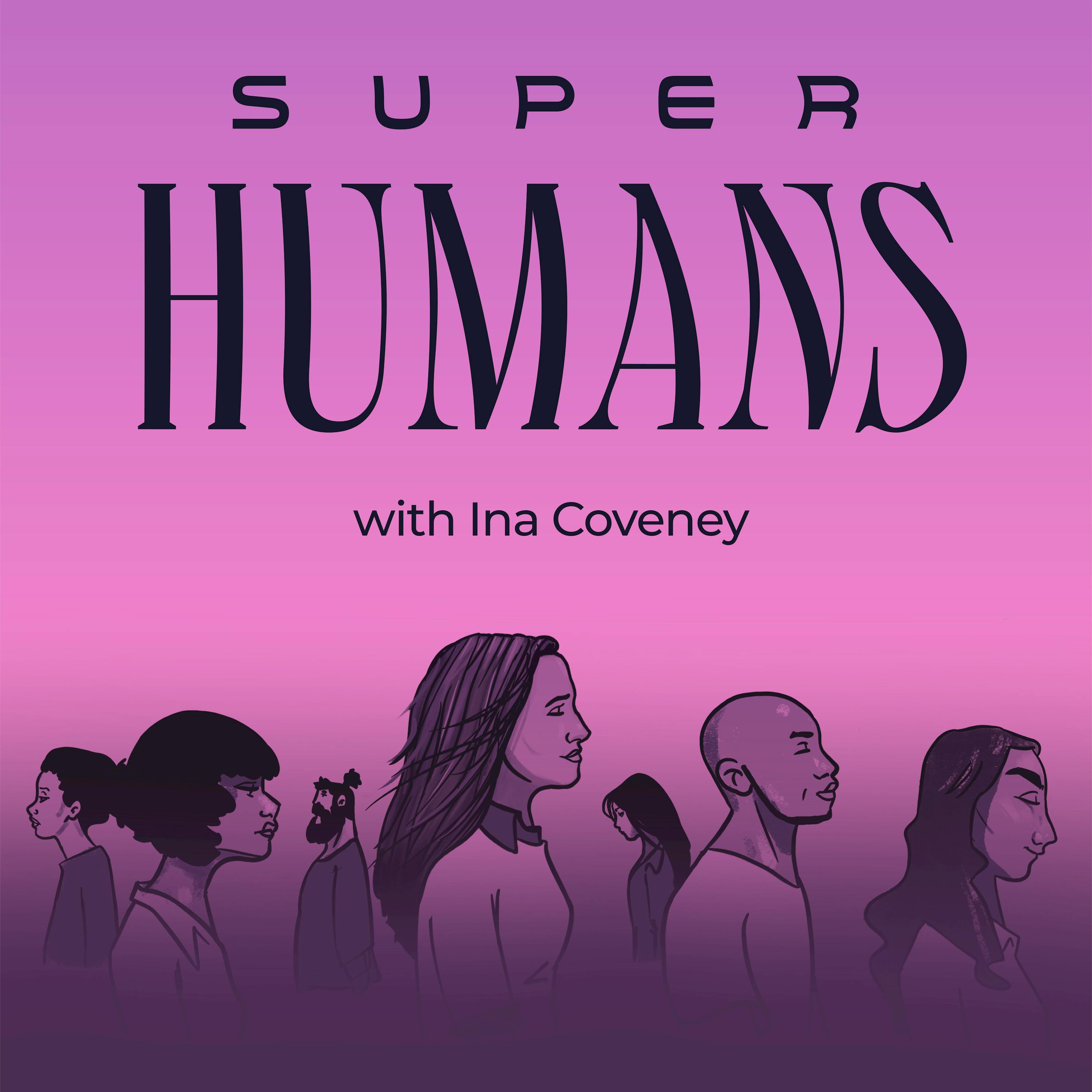
Super Humans with Ina Coveney
Ina Coveney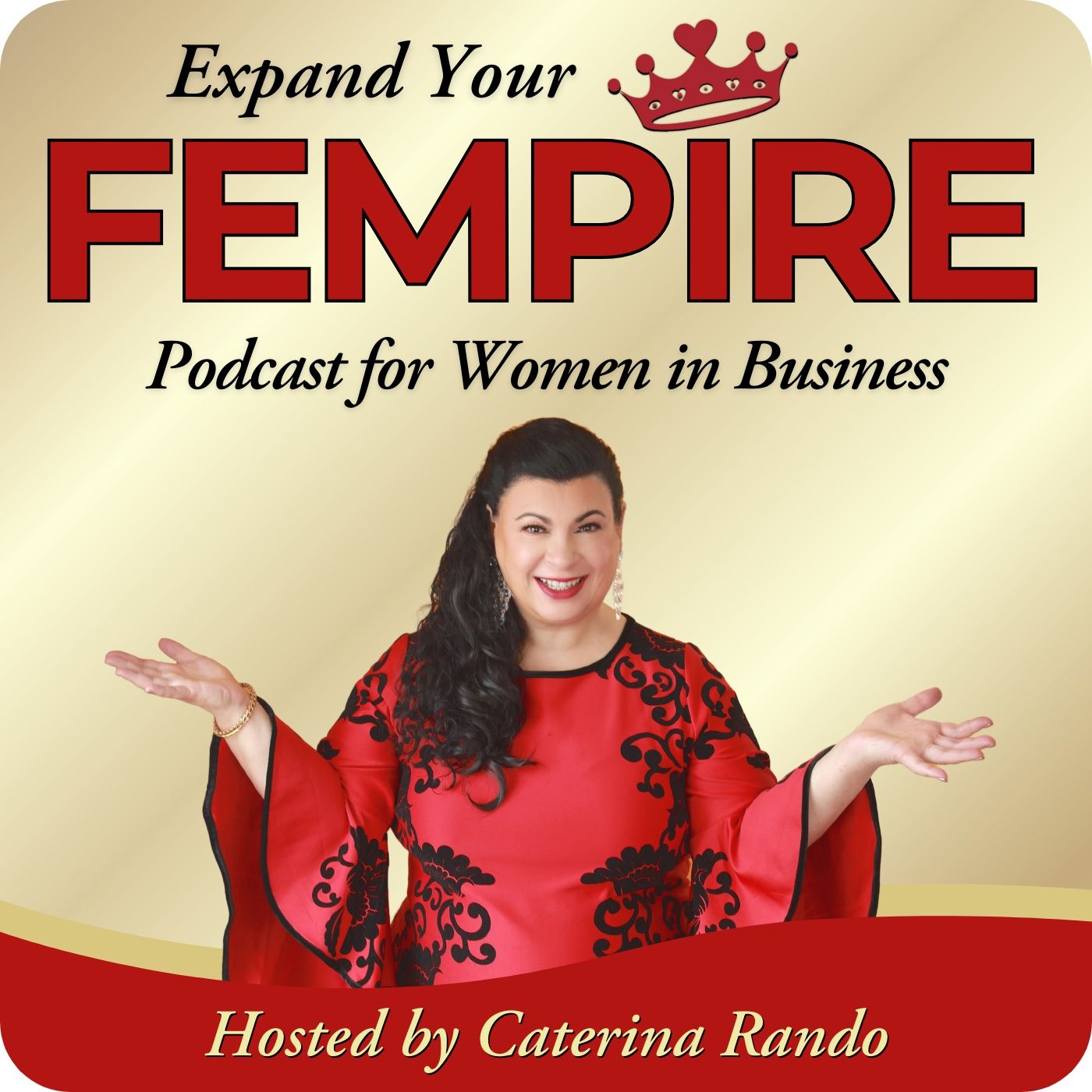
Expand Your Fempire with Caterina Rando
Caterina Rando
Painting Your Path
Clarissa Castillo-Ramsey
Just Wanted to Ask
Anne Zuckerman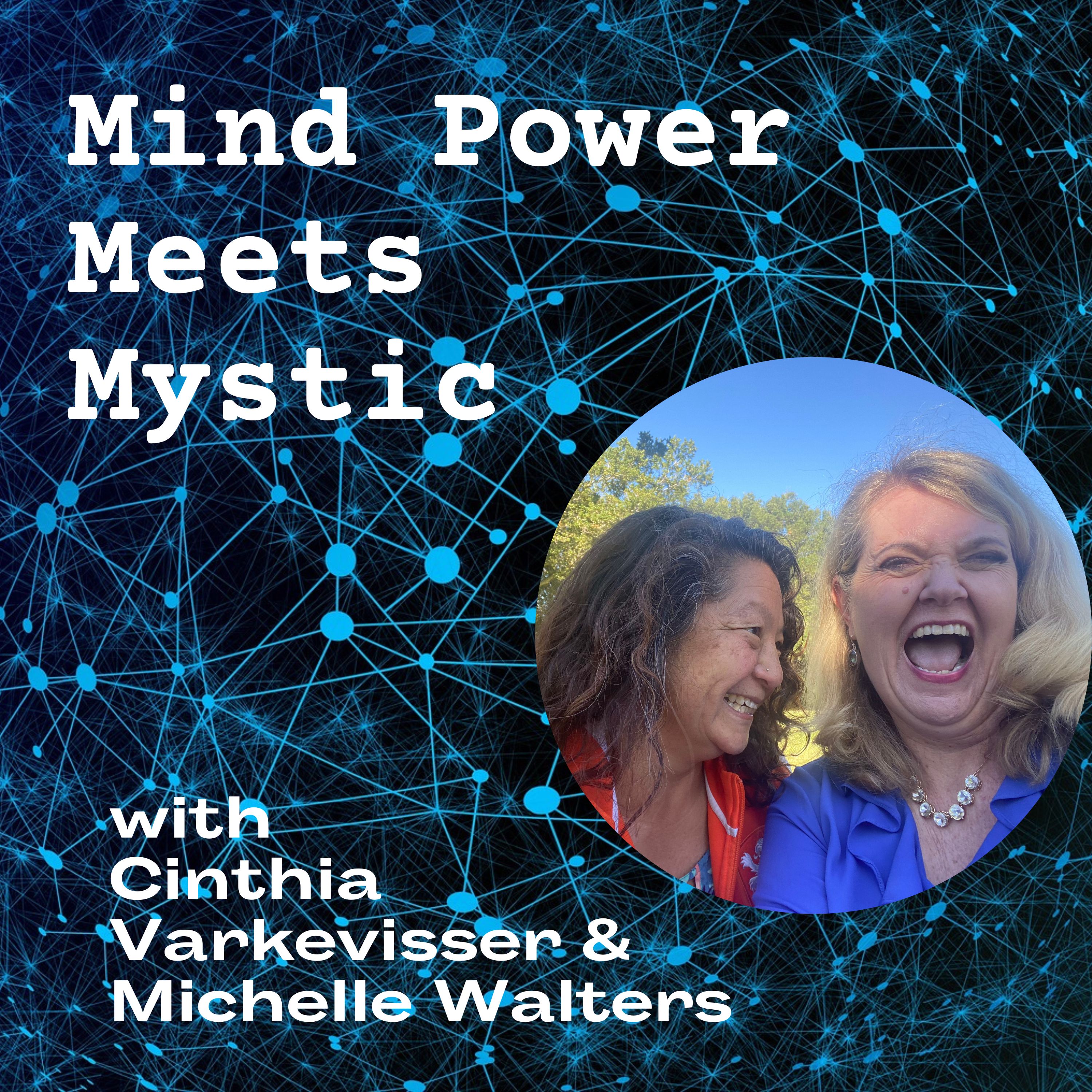
Mind Power Meets Mystic
Cinthia Varkevisser & Michelle Walters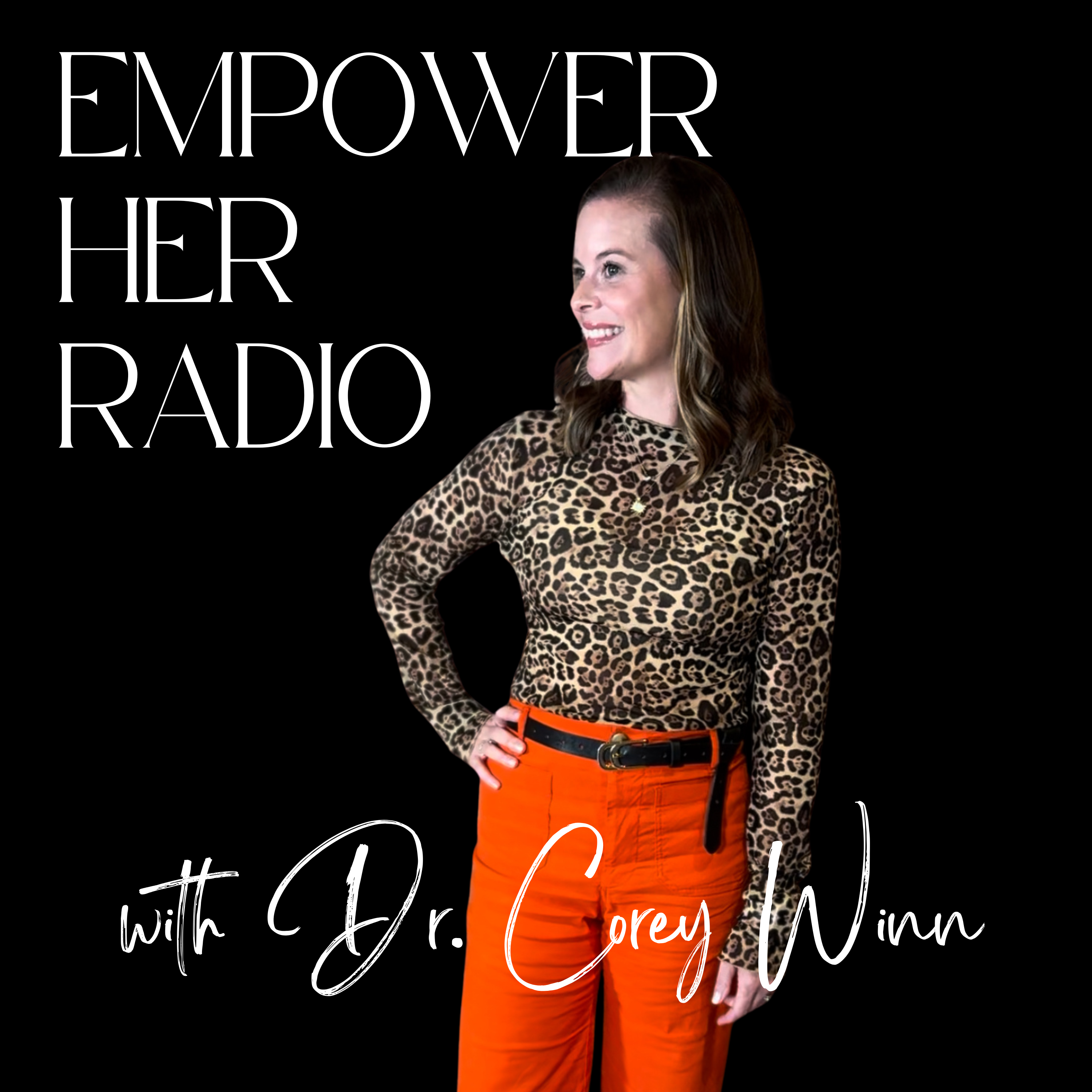
Empower HER Radio with Dr. Corey Winn
Dr. Corey Winn
Casa De Confidence Podcast | Grow Your Business, Life and Confidence
Julie DeLucca-Collins - Business Strategist for Women in Midlife
BECOME EMPOWERED
Sabine Kvenberg
The Pet Parent Hotline | Real Help for Pet Behavior, Budgets, and Everyday Stress
Amy Castro - Pet Parenting & Behavior Expert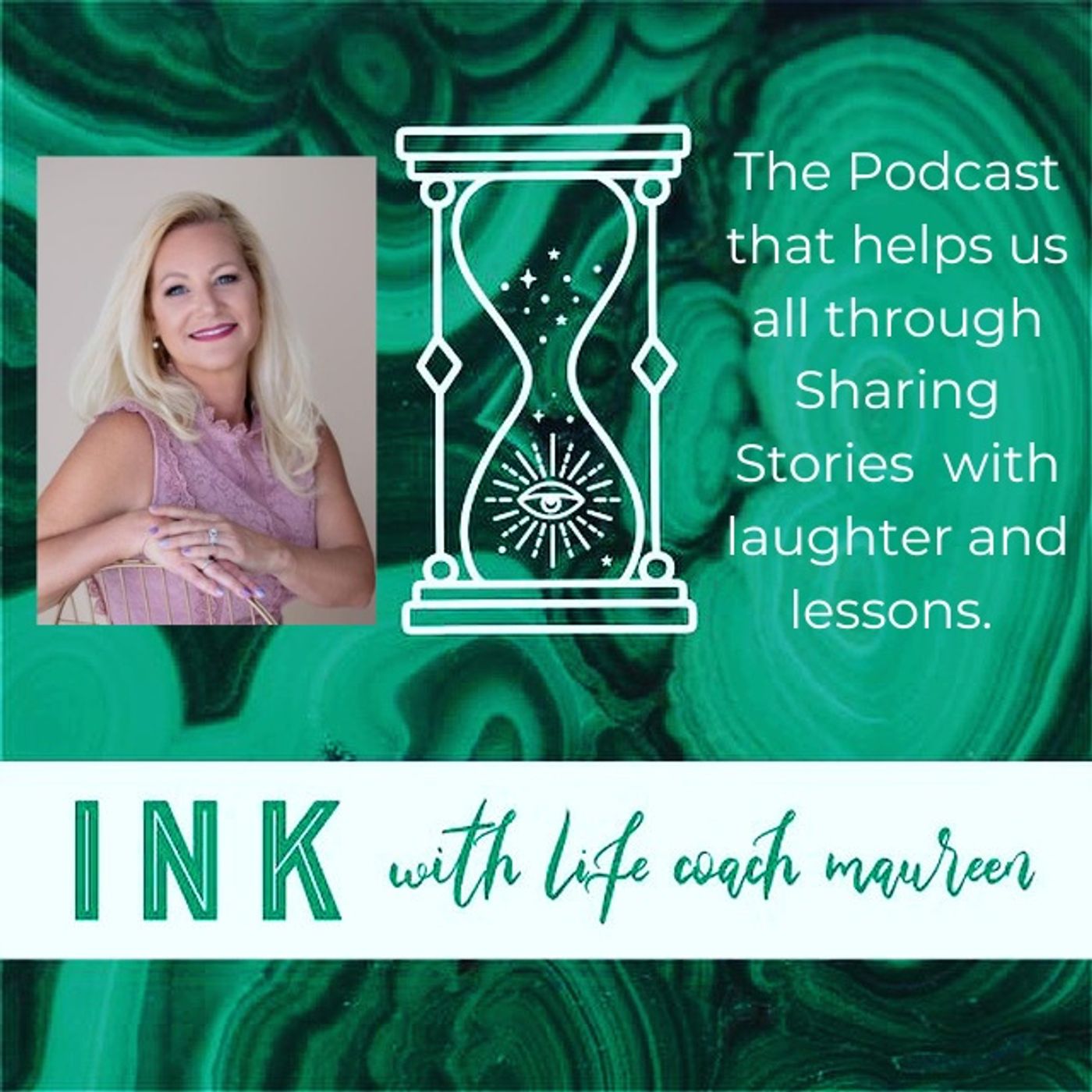
I Never Knew (INK) But My Dog Did! By Lifecoach Maureen
Maureen Scanlon
Podcasting Made Simple
Alex Sanfilippo, PodMatch.com
Grounded in Maine
Amy Bolduc (Fagan)
Ice Cold Case
Madison McGhee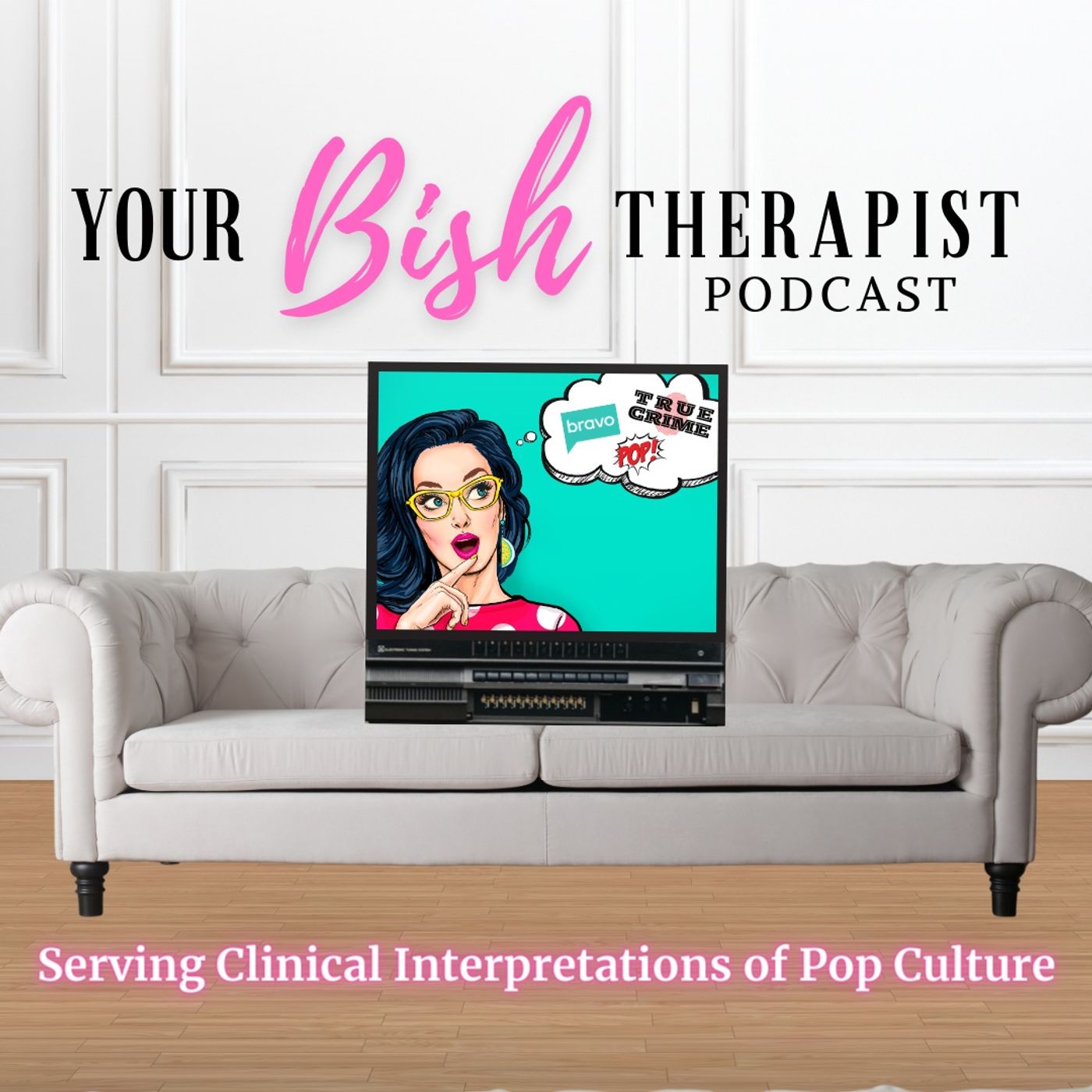
Your Bish Therapist
Melissa Reich
HIListically Speaking with Hilary Russo
Hilary Russo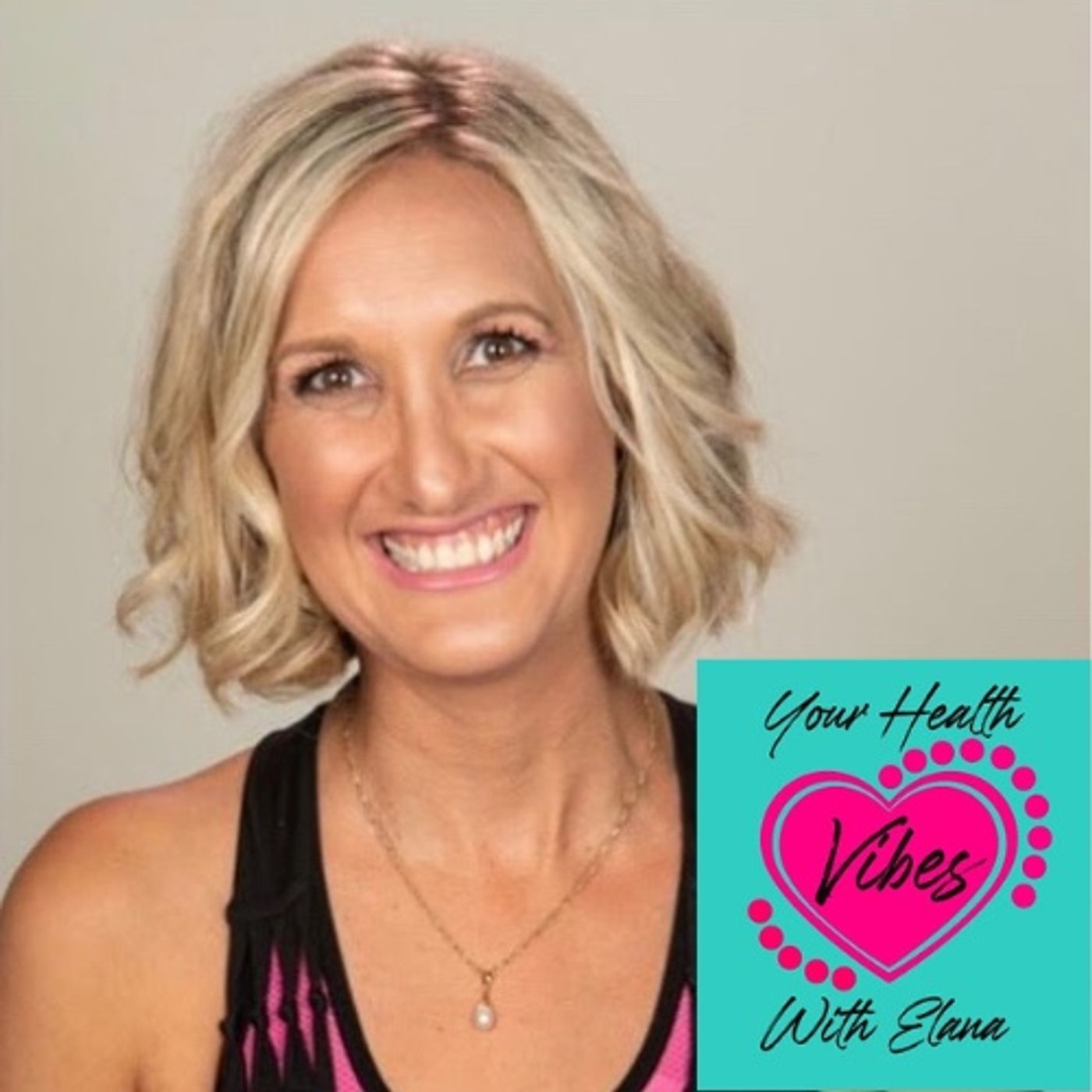
YOUR Health Vibes with Elana
WGSN-DB Going Solo Network
Don't Be Caged By Your Age
Ande Lyons
The Wellness Project with Des
Desiree Argentina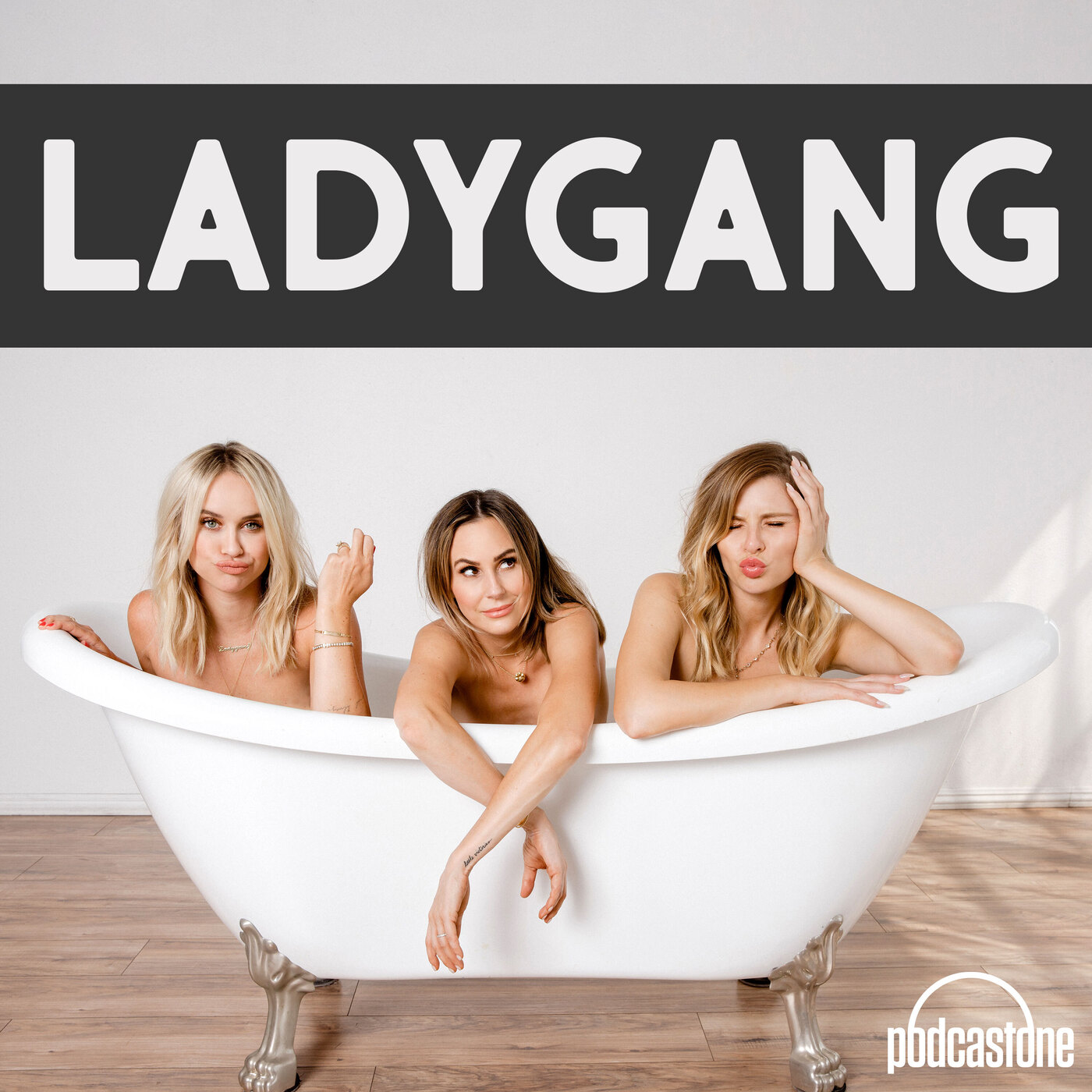
LadyGang
PodcastOne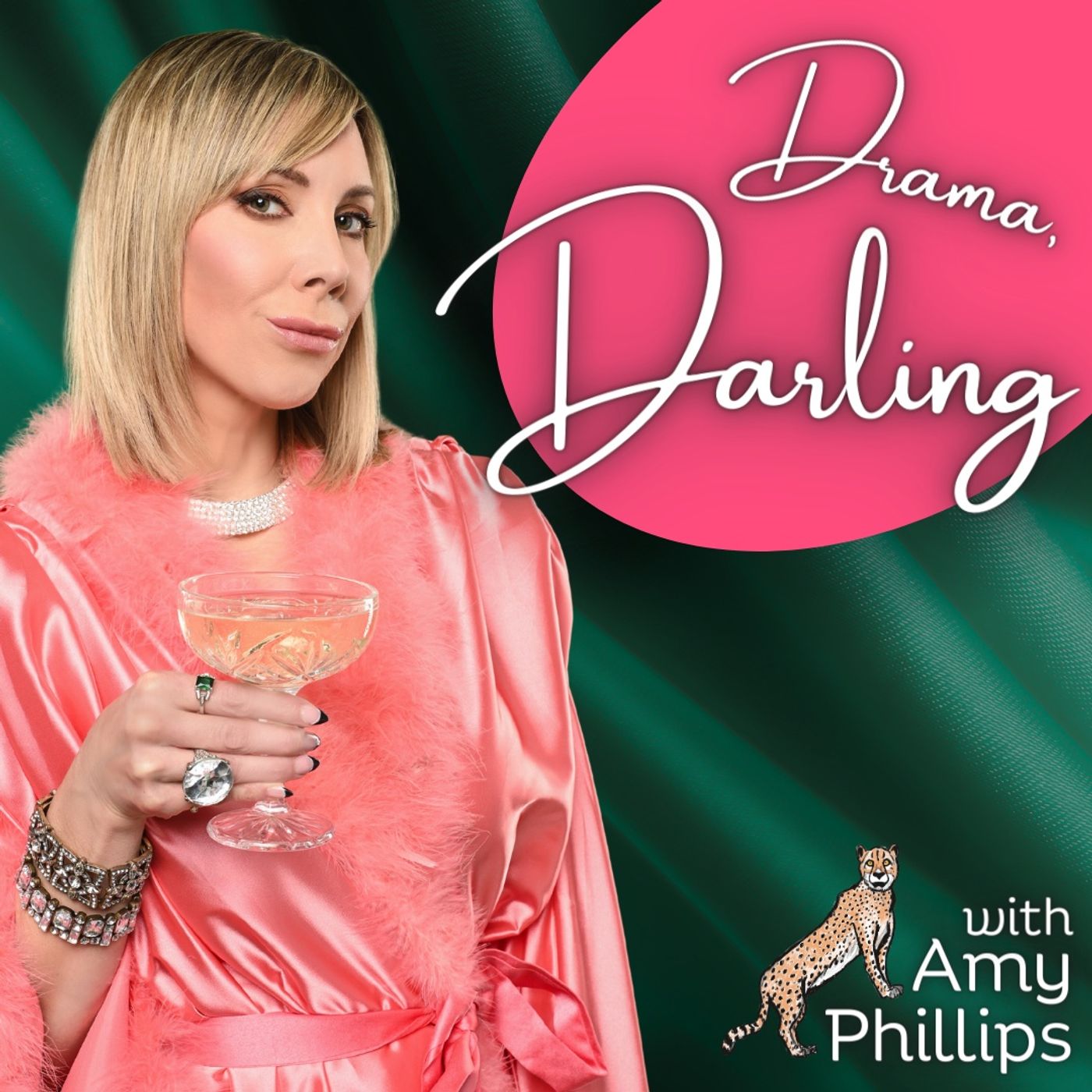
Drama, Darling: A Real Housewives Comedy Podcast
Amy Phillips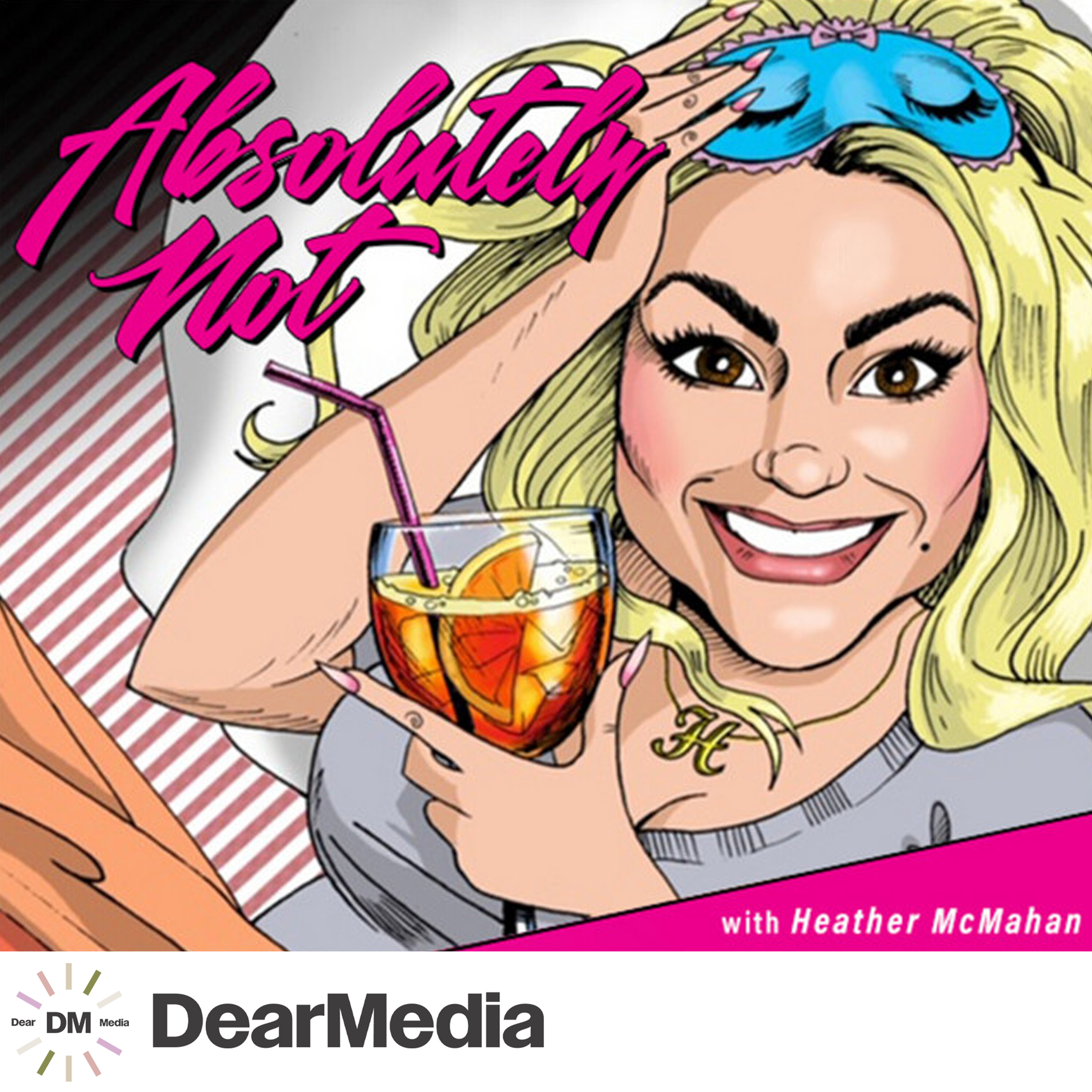
Absolutely Not
Dear Media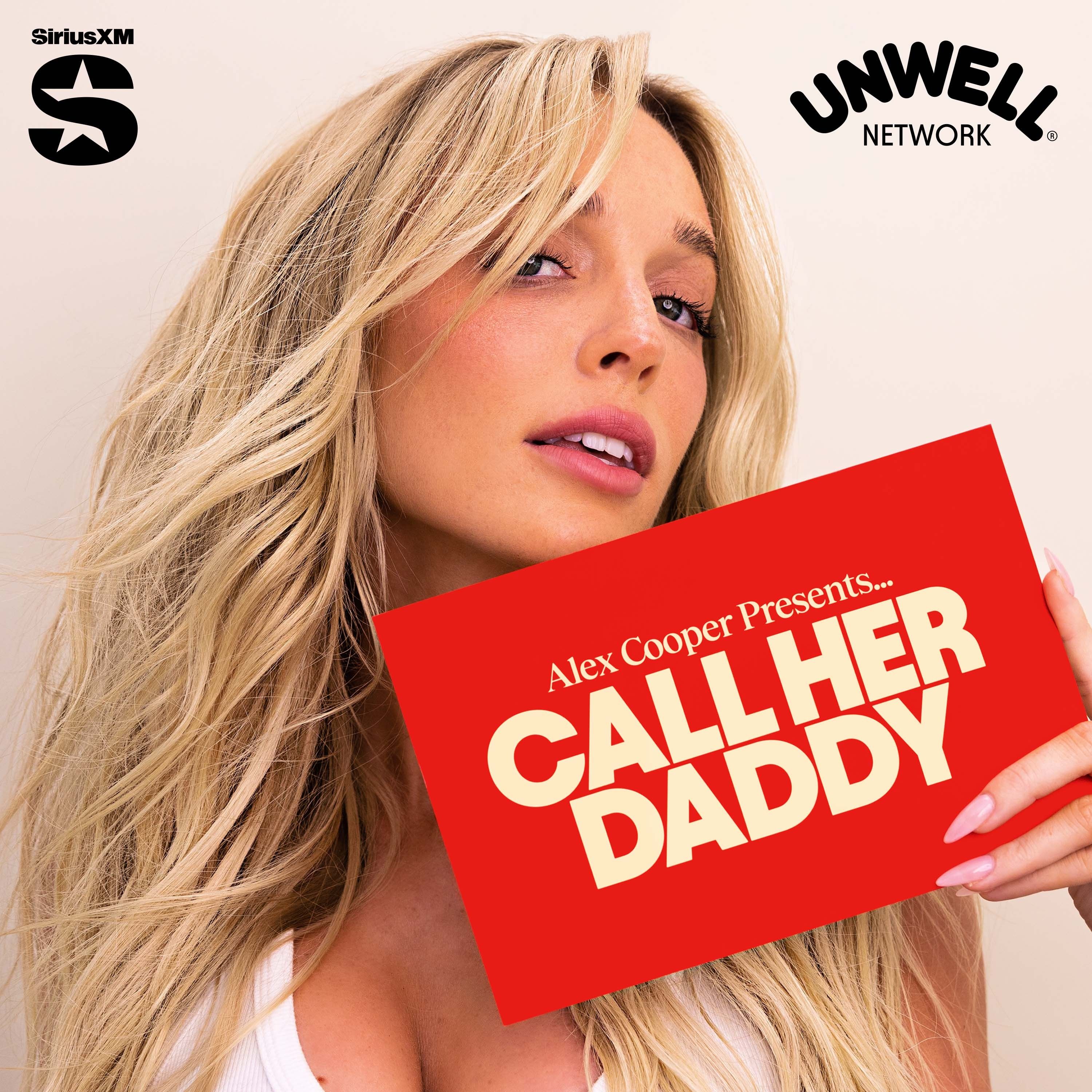
Call Her Daddy
Alex Cooper
Giggly Squad
Hannah Berner & Paige DeSorbo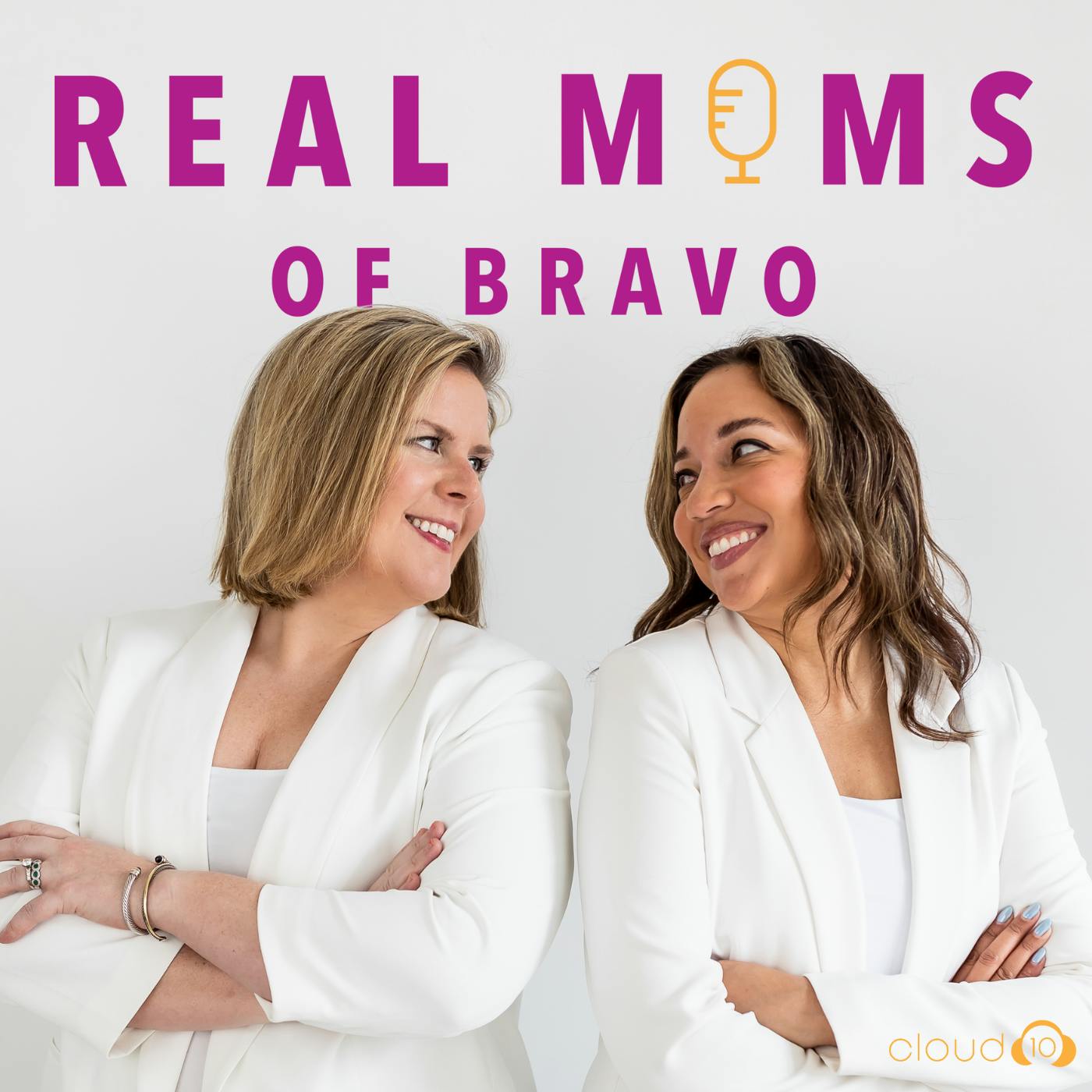
Real Moms of Bravo
Cloud10
Vegan Food Truck Business Podcast
Heather Zeitzwolfe (Savvy Frugal Vegan)
Raise Your Volume Academy with Tiphany Kane, M.Ed.
Tiphany Kane, M.Ed, CEO of KaSa Media Productions
Only One In The Room
Laura Cathcart Robbins
Beyond the Downloads | Podcast & Business Growth
Jenn Dragonette
Feed Your Soul with Kim
Kim McLaughlin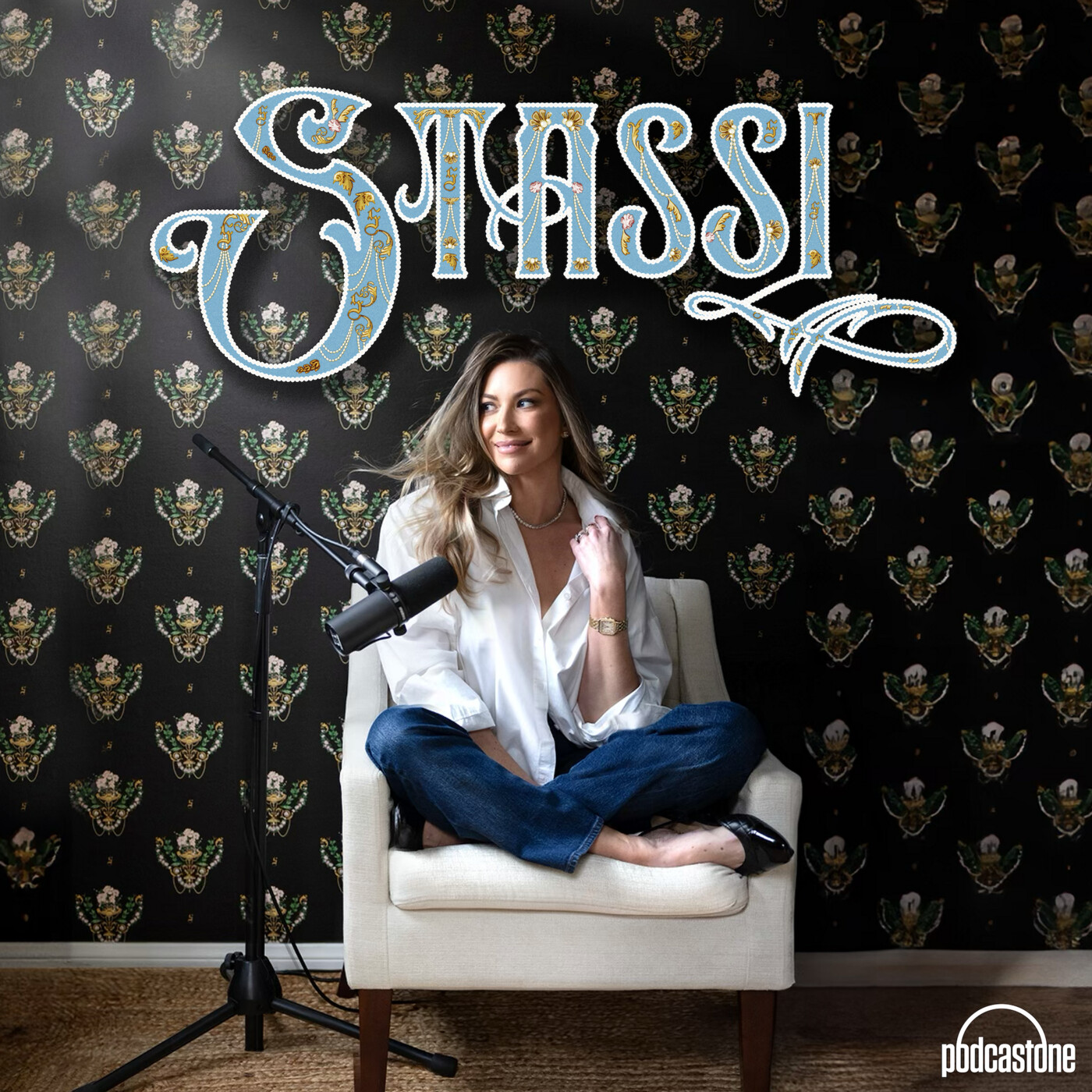
Stassi
PodcastOne



